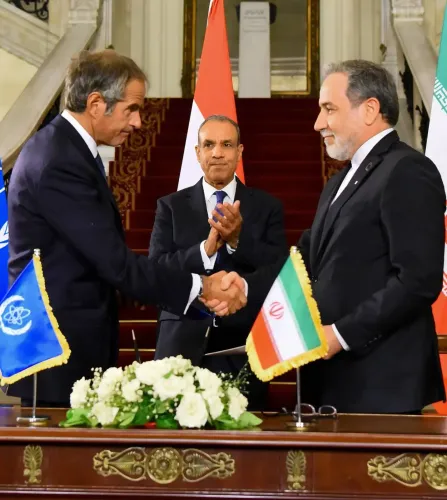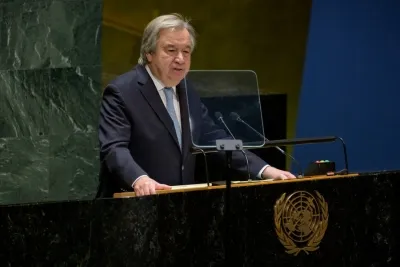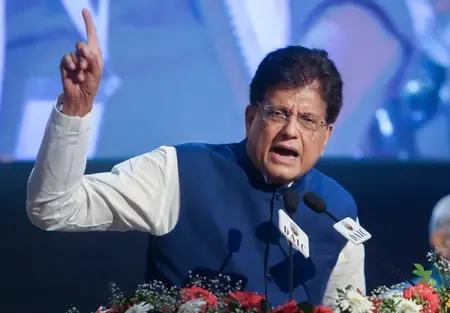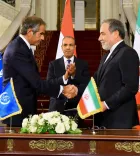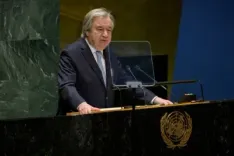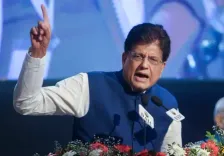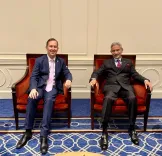Why is Muhammad Yunus Holding onto Chair? (IANS Analysis)
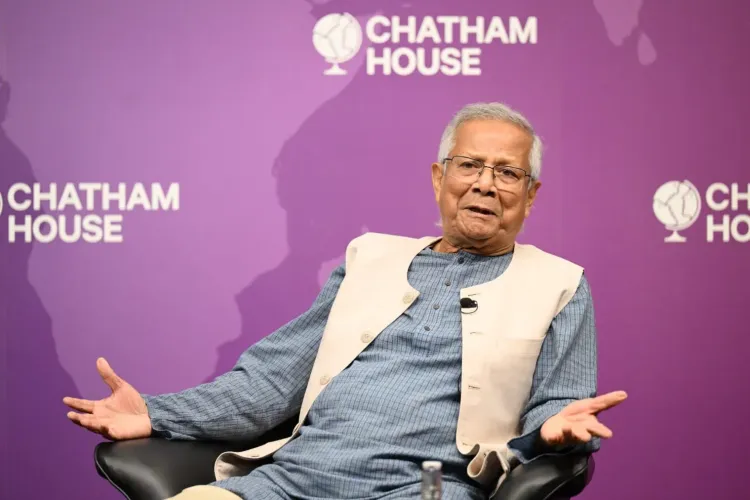
Synopsis
Key Takeaways
- Muhammad Yunus faces increasing pressure due to a lack of electoral transparency.
- The interim government has been criticized for its unilateral actions.
- Press freedom in Bangladesh is under severe threat.
- Political parties are uniting against the Yunus administration.
- The demand for early elections is growing stronger among the populace.
Dhaka: Muhammad Yunus's influence is diminishing as the interim government grapples with multiple crises, complicating Bangladesh's political environment. June marks the tenth month since Yunus took the helm as the Chief Advisor of the interim government, which was established through a consensus among political factions, civil society, and the military after the removal of Sheikh Hasina. Initially, it was anticipated that this interim government would have a brief tenure, akin to past caretaker administrations, primarily tasked with managing state affairs efficiently and ensuring free and fair elections. However, the Yunus administration has not succeeded in meeting these expectations and has instead engaged in extensive state reform through the establishment of various reform commissions.
In the meantime, Yunus's policies and decisions have only intensified the difficulties confronting the interim government amid the tumultuous conditions that have enveloped the nation since August 5 last year. Despite this, Yunus seems to be swimming against the tide of the country’s political sentiments. This leads to the pressing question — why is Muhammad Yunus still clinging to power?
Several significant developments lend credence to this theory. One notable instance is the passing of unconstitutional amendments through ordinances such as the Cyber Protection Ordinance, amendments to the International Crimes (Tribunals) Act, the Anti-Terrorism Act, and the Enforced Law Ordinance. These ordinances have faced criticism for being enacted without public consultation. More alarmingly, these legislative actions underscore Yunus's apparent political vendetta — specifically, the marginalization of the Awami League. Two crucial developments further bolster this perspective: first, the worsening state of press freedom in Bangladesh, and second, the imposed ban on the Awami League.
The Cyber Protection Ordinance, intended to replace the stringent Cyber Security Act, was introduced by the interim government with claims of enhancing cyber security. This came after a period during which press freedom in Bangladesh had already faced severe restrictions under the previous regime. However, the new ordinance has shown a similar pattern of suppressing press freedom, evidenced by the backlash from rights organizations regarding the withdrawal of press accreditation for journalists.
The targeted harassment of journalists critical of Muhammad Yunus and the interim government, as documented by the Rights and Risk Analysis Group (RRAG), paints a grim picture — approximately 640 journalists have faced targeting in the last eight months, with 91 reported incidents of harassment or assault in May alone. The indictment of journalists on terrorism and other criminal charges — mainly linked to the July uprising and their alleged connections to the former regime — has been widely condemned as a calculated move by the interim government to suppress press freedom. Contrary to expectations of a revival in free speech following the July uprising, press freedom remains a significant issue, as indicated by the latest global ranking from the international human rights organization Article 19, which classified Bangladesh as a 'crisis' country for freedom of expression.
The amendment to the Anti-Terrorism Act, approved on May 11, introduced a provision allowing the prohibition of terrorism-related activities by individuals and 'entities'. Concerns had already arisen that this ordinance would grant the interim government unchecked power to suppress political activities, particularly as it moved to ban the 'activities' of the Awami League under pressure from specific political factions. Merely a day after the ordinance's enactment, the Awami League was officially dissolved — another unilateral action taken without public consultation. While welcomed by parties that had rallied in the streets for this outcome, Yunus's decision drew significant international criticism and deepened domestic political rifts, with many viewing it as a violation of democratic principles executed without due process. The politically motivated violence targeting League supporters since Hasina's exit is well documented, and the ban is perceived as another escalation of such acts under a facade of impunity. These unconstitutional legal maneuvers have rightfully been identified as the interim government’s erosion of the nation's fundamental human rights and freedoms.
Muhammad Yunus's proposal in April to create a humanitarian corridor linking to Myanmar's Rakhine region represents the latest example of his administration's miscalculations. What sets this issue apart from previous ones is the unprecedented, united opposition and criticism it received from all political parties — both established and nascent — marking arguably the first instance of such consensus since Hasina's ousting. On one hand, concerns were voiced about the geopolitical risks this corridor posed to Bangladesh's territorial integrity; on the other, questions were raised about the interim government’s unilateral initiative to propose such a corridor without consulting political factions. The proposal also sparked suspicions that Yunus was prioritizing the interests of foreign powers over national sovereignty. Not only did political parties express discontent, but even the Bangladesh Army voiced opposition, further underscoring the growing tensions with the interim government. The Army Chief firmly rejected the notion of any such 'bloody corridor' and urged Yunus to organize elections by December, leading the interim government to ultimately retract the proposal.
The question of elections has become the most significant point of contention against the Yunus administration. The deliberate postponement of the national election has not only exacerbated divisions among political parties but also impeded meaningful progress in the state-building process. Although the interim government initially proclaimed that national elections could occur by December 2025, the subsequent extension of this timeline to June 2026 has ignited suspicions and fears that Yunus is intentionally attempting to retain power. The lack of a clear electoral roadmap — despite repeated requests from political factions — has heightened concerns that the interim government may further delay elections until the following winter. The political neutrality of the interim administration is increasingly questioned, with many perceiving Yunus as favoring the newly formed National Citizen’s Party (NCP), suspecting that the election postponement is a calculated maneuver to provide the NCP with an advantage in the upcoming vote.
However, the widespread agreement among political parties on the urgency of conducting early elections — despite their ideological differences — indicates a significant shift in the political landscape: time appears to be running out for Muhammad Yunus. The current political climate starkly contrasts with last August, when Yunus was invited to lead the interim government. The people of Bangladesh are now demanding elections, aiming to exercise their democratic rights and facilitate a smooth political transition. It seems the Chief Advisor may have become too comfortable with his power and is now making desperate attempts to cling to office.

